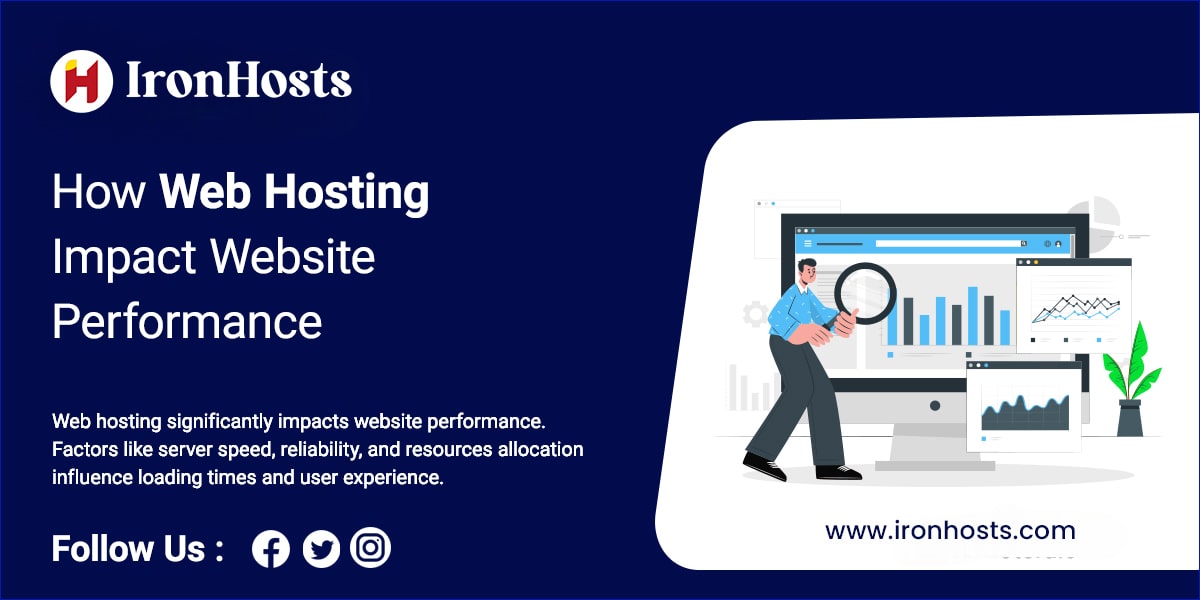Web hosting is a critical component that directly impacts the performance and user experience of a website. The choice of web host carries implications for website speed, uptime, and scalability. This article will examine key hosting considerations that affect website performance.
Web Hosting Infrastructure
The infrastructure and architecture behind a web hosting provider have significant performance ramifications. Hosting providers vary greatly in terms of the number and locations of their data centers, the hardware and network capacity available, and the technologies used to route traffic and serve website content.
Elements like server computing power, available RAM, and fast solid-state drives can accelerate content delivery and response times. Geo-distributed data centers placed closer to key visitor demographics improve loading speeds. CDNs or content delivery networks also offload traffic to edge locations for faster content serving. Robust network connectivity and bandwidth enable hosting infrastructure to handle spikes in traffic.
Upgrades to infrastructure translate directly into website speed and stability improvements. Many budget hosts compromise too much on infrastructure elements, hampering website performance.
Resource Allocation
Website hosting packages differ substantially in the server resources allocated per account. Entry-level shared hosting plans tend to be severely resource-constrained. Too many websites crowded onto a single server creates resource contention issues.
As websites grow and usage increases, they require higher resource allotments for optimal performance. Limitations on bandwidth, memory, CPU, and databases quickly translate into slow loading times, crashes, and error messages. Generous resource allocations and guarantees of resources ensure websites can scale to demand smoothly.
Managed WordPress Web Hosting
WordPress now powers over 40% of all websites. The growing complexities of securing, optimizing, and scaling WordPress installations have spawned a category called managed WordPress hosting. These plans offer heavily customized infrastructure, tools, and support capabilities tailored specifically to WordPress.
Elements like server caches, content delivery networks, PHP accelerators, and MySQL optimizations directly enhance WordPress performance. Auto-scaling of resources protects against traffic surges. Integrated WAF or web application firewall secures sites. Expert WordPress technical assistance helps resolve performance issues quickly. For busy WordPress sites, managed WordPress hosting delivers superior speed and user experience.
Server Monitoring and Management
Website uptime and speed rely heavily on vigilant server monitoring and expert management by the hosting provider. Proactive checks identify emerging problems early before they escalate into performance degradation or outright downtime. Swift incident response minimizes impact on visitors.
Ongoing server optimizations, updates, and fixes enhance stability and prevent deterioration over time. Many budget web hosts take a more hands-off approach, relying too heavily on automated systems. This often translates into higher incidences of downtime and consistently slower website speeds.
READ THE RELATED ARTICLE: Web Hosting Service Explained: Types, Features, and Benefits
Conclusion
Choosing the right web hosting is a foundational step toward achieving optimal website performance. From loading speed and uptime to security and SEO, your hosting provider directly influences how well your site serves visitors and ranks in search engines. Investing in reliable, high-quality hosting ensures that your website is fast, secure, and available ultimately leading to a better user experience, higher engagement, and improved credibility. In a digital landscape where performance matters, selecting the best hosting solution for your needs can make all the difference.
FAQ’s
Q1: How does web hosting affect my website’s loading speed?
A: The type of web hosting you choose (e.g., shared, VPS, or dedicated) determines the resources available to your site. More resources generally mean faster loading speeds, which enhances user experience and SEO rankings.
Q2: Why is uptime important for my website performance?
A: Uptime is the measure of your site’s availability online. A reliable web hosting provider ensures high uptime, minimizing the risk of your site being inaccessible to users.
Q3: Does web hosting impact my site’s security?
A: Yes, hosting providers often include security measures such as firewalls, SSL certificates, and regular backups. Secure hosting helps protect against data breaches and malware, keeping your site safe.
Q4: How does web hosting influence SEO?
A: Search engines prioritize fast, secure websites with minimal downtime. Hosting that supports fast page load times and stability improves SEO rankings, helping your site reach more visitors.
Q5: What hosting features improve website performance?
A: Features like SSD storage, caching capabilities, a CDN (Content Delivery Network), and scalable resources all contribute to better performance by reducing load times and handling traffic spikes effectively.

